They may be terminally ill, but their sense of humour is doing a Benjamin Button. The team behind #laughatdeath on what it took to get palliative care patients to laugh at their fate

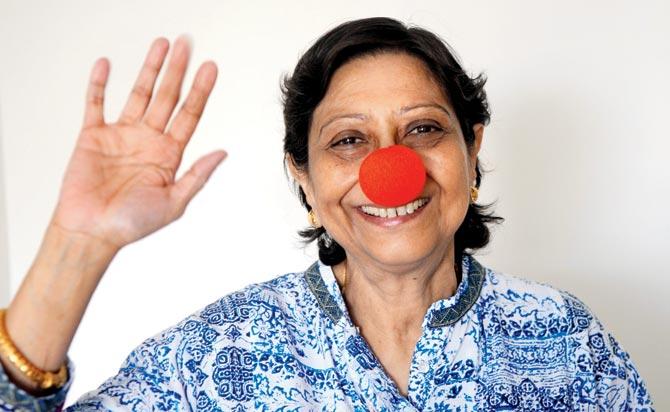 Janice Powell. Pic/Dutta Kumbhar
Janice Powell. Pic/Dutta Kumbhar
ADVERTISEMENT
In March, stand up Kunal Kamra had a taste of vitriolic trolling when he put out a video critiquing the government. The threats he received on twitter, with information about his personal address made public, made social media and mainstream newspaper fodder.
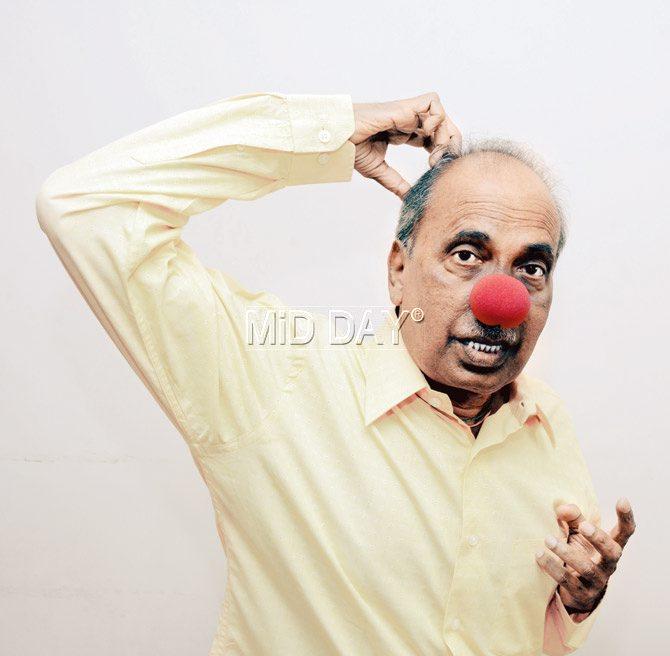 Narendra Mhatre. Pic/Sneha Kharabe
Narendra Mhatre. Pic/Sneha Kharabe
It couldn't have been an easy time. But Kamra, lists not this episode, but another involving four patients as his most challenging. The task cut out before him, and fellow comedians Punit Pania of Chalta Hai Comedy, and Kashyap Swaroop was to make a joke of death. Pooran Issarsingh, 85, Janice Powell, 65, and Narendra Mhatre, 64, and Manudevi Singh would help him get there. All palliative care patients, they were living with a life-threatening illness that required providing specialized relief from the pain, symptoms and stress of the ailments.
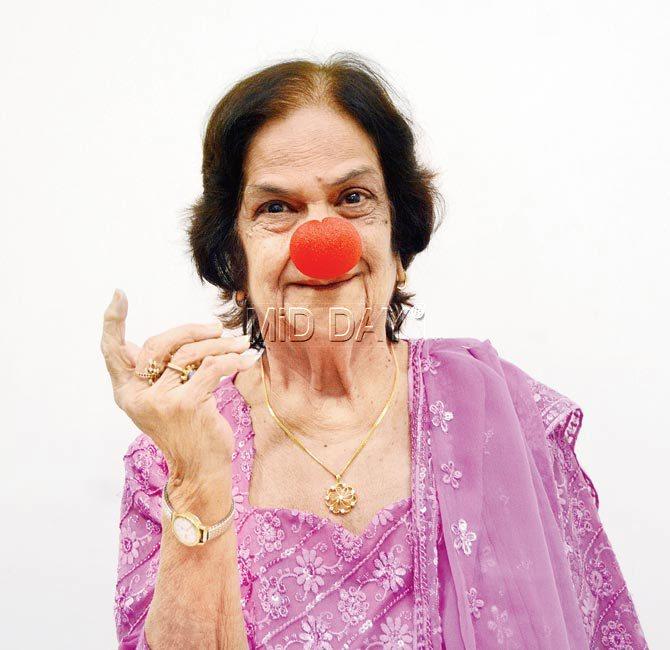 Pooran issarSingh. Pic/Sneha Kharabe
Pooran issarSingh. Pic/Sneha Kharabe
In a unique collaboration between The Indian Association of Palliative Care (IAPC) and Medulla, a Mumbai-based healthcare-specialist advertising agency, the three of the four seniors and stand ups would engineer a stage act that made light of their medical conditions, but with the purpose of nudging the audience into relishing their present.
Launched earlier last week, #laughatdeath culminated in a performance by them at Bandra's Cuckoo Club. A video of the performance has garnered more than 450K views on Youtube in just 72 hours.
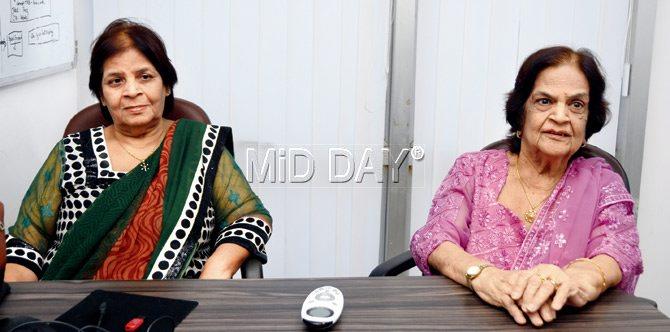 Pooran Issarsingh (right) with sister Sarla at Medulla’s Santacruz office. Pic/SNEHA KHARABE
Pooran Issarsingh (right) with sister Sarla at Medulla’s Santacruz office. Pic/SNEHA KHARABE
The not-so-Grim Reapers
Former lawyer Pooran Issarsingh's zingy energy is impossible to ignore when we meet her at the Medulla office in Santacruz. Sitting beside her "sister and best friend" Sarla, she says she has managed to wipe out memories of her days in the ICU. "You can laugh at death once you accept it is inevitable," she says without a hint of sageness. Her 75-year-old sister was pleasantly surprised at the laughs Poorna gathered, some of the loudest of the evening.
"She wasn't funny as a child. But she transformed that day on stage. I have been with her, supporting her through rehearsals," says Sarla.
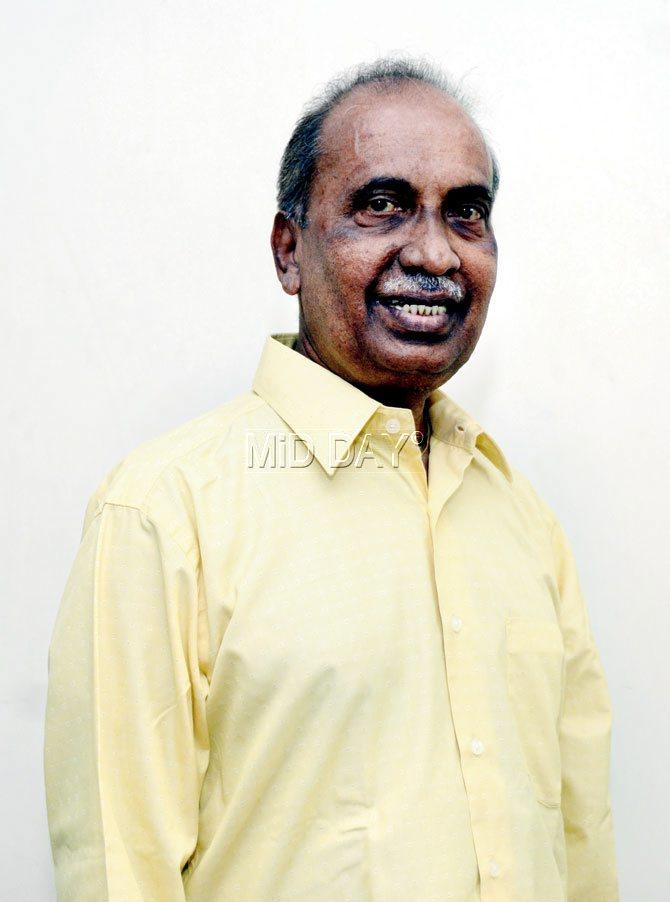 Narendra Mhatre. Pic/Sneha Kharab
Narendra Mhatre. Pic/Sneha Kharab
Pooran admits she didn't find the comedians funny at first. "But soon, rehearsals became like the coming together of friends. They were keen to know about my lifestyle and that helped me frame the jokes. You can say the input was mine, the output theirs." Swaroop says the debutants' flair on stage was surprising. "Pooran didi and I had an inside joke about her being the most eligible bachelor in the room. She is still single. She destroyed it at the event! Her positive energy was infectious,"
he says.

That evening, Mhatre spoke of receiving the best, and first gift in 35 years from his wife — a kidney. Having been through torturous dialysis sessions over two years after both kidneys failed him, the wait for a donation seemed endless. "It was tough, those two years of dialysis. You can say, I took a little battery charge now and then," he laughs. "But I am better now, and have forgotten the illness. It is my nature not to recall the past." Mhatre calls the evening of the performance a poignant one. "They [audience] was laughing at our jokes, but they were also touched."
His collaborator on stage, Powell underwent chemotherapy for nearly 15 months, after which she switched to palliative care. She sees the initiative as one that will motivate people about enjoying what they have. "Don't be scared of death. It's really not such a bad thing. Live for today because that is the only day you have control over, not tomorrow or yesterday," she says. Her husband George is her pillar of strength. They travel together, watch movies and follow football. "Now, we have even done stand up comedy," he says. I didn't know about palliative care at first. Having experienced it, I think it deserves more importance. Their counselling proved motivating. They focus on reducing the patient's pain and suffering."
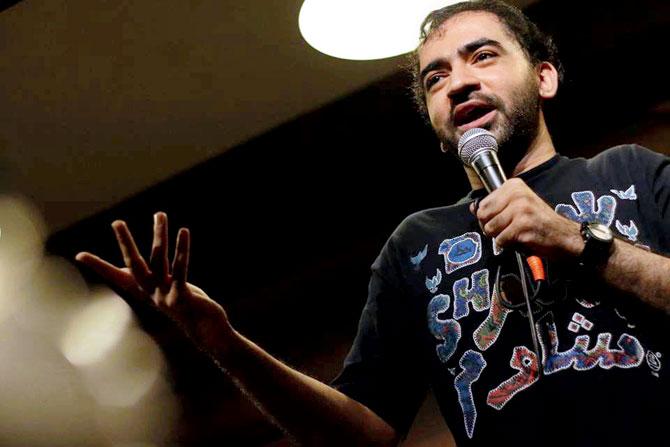 Punit Pania
Punit Pania
They taught the experts
Pania, who was assigned Mhatre for training, says in an atmosphere of increasing intolerance, they risk crossing the line into an uncomfortable zone. "But [tackling] the topic of death in India is different altogether. What we did with #laughingatdeath was several steps ahead of what we have accomplished so far. It was important that we framed the jokes keeping the patient's natural mannerisms, personality and voice in mind."
Praful Akali, Founder & MD of Medulla, calls it an ongoing project, a platform for terminally ill patients to share their stories and spread awareness on palliative care.
"It is about the strongest demo campaign you'll ever see," he says. His colleague Amit Akali, chief creative officer, calls it "an almost impossible project" made easy and possible by the patients, eager to share their stories and make the most of their last days. "They moved us with their courage and floored us with their live performances."
Dr Mary Ann Muckaden, President, IAPC, hopes initiatives such as these inspires more people to access palliative care. She says, "Only 3 per cent of cancer patients manage to get even simple pain relief. Hopefully, this campaign will change that."
 Subscribe today by clicking the link and stay updated with the latest news!" Click here!
Subscribe today by clicking the link and stay updated with the latest news!" Click here!







